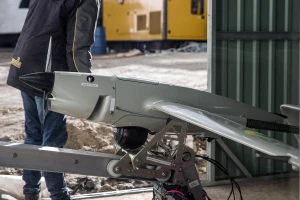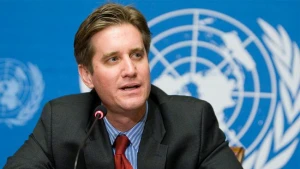
“I doubt it's about buffer zone”: military expert Stupak suggests purpose of Kursk operation
Ivan Stupak, a military expert and employee of the Security Service of Ukraine (2004-2015), believes that through the operation in the Kursk region, Ukraine is trying to improve its position during possible negotiations with Russia
He shared his opinions with Espreso TV.
“I don't think we are talking about a buffer zone. If there were a buffer zone, then with modern ballistic weapons it should be somewhere around the second garden ring in Moscow. I see this story, this whole offensive operation, more as the creation of new conditions on the Ukrainian side for the start of peace talks,” Stupak said.
The military expert believes that in this way Ukraine can reduce the initial demands that Russia makes to the country.
“Please remember that whenever theoretical peace talks are mentioned, the Russian Federation insists on 'taking into account the current realities on the ground,' meaning they want to recognize any area where a Russian soldier is stationed as Russian territory. Similarly, Ukraine decided to reverse this situation. So, this is an attempt to knock the ground out from under Russia, to somehow reduce the initial peace demands that Russia puts forward to us, to cause damage on their side, to damage their infrastructure, to create a large number of their internally displaced people,” added Ivan Stupak.
Ukraine’s cross-border incursion in Russia’s Kursk region
On August 6, the authorities of Russia's Kursk region stated that the Ukrainian Armed Forces allegedly tried to break through the Russian border, but were allegedly pushed back. Later, the Russian Defense Ministry reported that "the Ukrainian sabotage and reconnaissance group retreated to its territory.”
Ukraine's Main Intelligence Directorate refused to comment on the statements regarding the Kursk region. However, NV media, citing its own source in Ukrainian intelligence, wrote that the events in the Kursk region "definitely did not involve fighters of the Russian Volunteer Corps, who are fighting as part of Ukraine's Armed Forces.”
The Institute for the Study of War noted that the Russian Defense Ministry, acting governor of the Kursk region Alexei Smirnov, and some propagandists have different versions of the events in the Kursk region.
On August 7, Kremlin leader Vladimir Putin convened the Russian military leadership to discuss the situation in the Kursk region, which he called a "large-scale provocation." At the time, Russian Foreign Ministry spokeswoman Maria Zakharova called on the international community to "strongly condemn the Kyiv regime's criminal attacks on Russian territory."
On the same day, Russian media reported that workers at the Kursk nuclear power plant feared that the plant's management had not prepared for a possible attack by the Ukrainian armed forces.
Additionally, in the Kursk region, Russians have begun forming UAV operator units from civilians, providing them with up to 10 hours of training.
On August 7, a state of emergency was introduced in the Kursk region.
On August 8, the Institute for the study of War reported that Ukrainian troops confirmed advancing up to 10 km deep into the Kursk region as mechanized offensives continued.
On August 8, Russia’s National Guard announced that it had implemented additional security measures at the Kursk Nuclear Power Plant to protect a "particularly important facility."
The Washington Post reported that Ukraine has taken control of the gas metering station in Sudzha, Kursk region. Previously, Russia claimed that the Ukrainian Armed Forces had occupied several border villages and part of the town of Sudzha.
Deputy Pentagon Press Secretary Sabrina Singh stated that Ukraine’s actions in the Kursk region in Russia "are consistent with U.S. policy" and do not cause any escalation.
On Friday, August 9, it was reported that mercenaries from PMC Wagner intend to fight for Russia in the Kursk region.
The Wall Street Journal, citing its own sources, reported that Russian military leaders have decided to withdraw some of their forces from Ukraine to redeploy them to the Kursk region in response to Ukraine’s military operations.
On August 13, John Kirby, Strategic Communications Coordinator at the White House National Security Council, suggested that if Kremlin leader Vladimir Putin is concerned about the developments in the Kursk region, he could choose to end the war.
Since the start of August 14, the Ukrainian Defense Forces have captured over 100 Russian soldiers.
- News












































